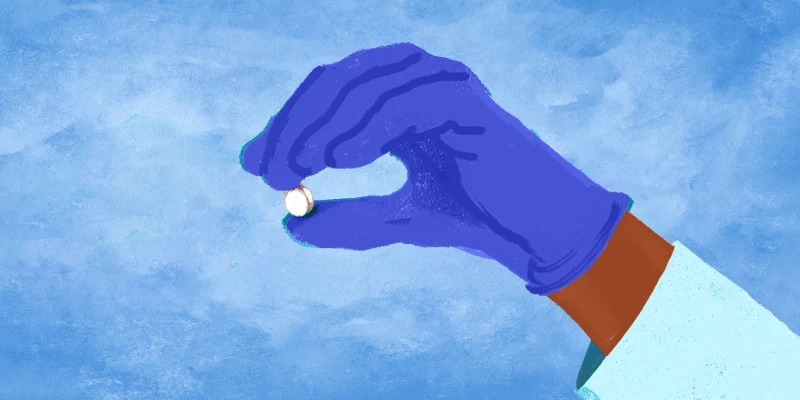
I was born in a small town in India — a country whose cultural history spans more than 4,500 years and houses the Taj Mahal, the world renowned iconic emblem of love. However, traditionally the Indian society has been a male-dominated one, in which women are seen to play a role subordinate to men. Nevertheless, I was blessed to be born into a very educated and loving family and had a wonderful childhood. I was brought up with all the comforts one could ask for, received the best education, and never realized that I lived in a patriarchal society.
Right after I finished high school, my family decided to move to America. I was hesitant to leave my friends and relatives but was told that “America was a land of opportunities.” When I came to America, it was an absolute culture shock for me. I had to learn everything from scratch — the language, the culture, the customs, the laws — everything. At the same time, my family started suffering from a financial crisis. To help support my family, I started working odd jobs at McDonalds and Dairy Queen. My dreams of becoming a physician took a back seat, and I entered a phase of depression. I had no friends in this new country and no money to call my old friends. I started keeping more and more to myself and felt like I was getting surrounded by darkness. I did not want to share my feelings with my parents because I knew how hard they worked just to meet our basic needs.
One fine morning, my parents sat me down and asked me to leave my job and start taking pre-medical courses at a university so I could start pursuing my dream of becoming a physician. Tears rolled down my face when I found out they had picked up double shifts to pay for my tuition. I felt a burst of hope and decided to work twice as hard to make my parents proud. That year, I took 49 credit hours and ended up graduating from university in 2.5 years. When I got an acceptance letter from a medical school, I was elated and wept tears of joy. I was twenty years old, and the youngest student in my class.
I graduated from medical school with honors and got into my top choice residency program. Residency was not just hard with long hours but was also emotionally challenging. I remember one specific incident. I was working nights and taking call in the ICU when I admitted an elderly white gentleman who had suffered from acute respiratory failure secondary to decompensated heart failure. I had spent the whole night by this patient’s bedside. I intubated him and put him on a ventilator, started a central venous line to administer vasopressor medications to help maintain his blood pressure, and at the same time put an arterial line to monitor his blood pressure closely. His blood pressure was very fluid and I had been constantly managing him by making changes to his vasopressor medications. By the time I left in the morning, his blood pressure was adequately controlled, and his condition had stabilized. Two days later when I returned to the ICU, I learned that the patient had been successfully extubated and was doing well. I was ecstatic to hear that and decided to swing by the room of this patient who I had spent the whole night with, trying to save his life.
When I went to his room, he was sleeping comfortably so I decided not to wake him up. A few hours later, I got a call from the nurse stating that the patient wanted to speak to the doctor. I went in this patient’s room with my nurse, a middle-aged white man. When the patient saw me, he started directing all his questions to the nurse. The nurse kept redirecting the question to me, but the patient wouldn’t make any eye contact with me and showed displeasure on his face knowing that I was his doctor. Regardless, I made sure all his questions were thoroughly answered.
When I left the room, and was charting the patient’s progress, the nurse came to me and apologized on behalf of this patient’s behavior and told me that after I left the room, the patient asked him if there were any appropriate white male physicians in the hospital. The nurse told him that I was the one who had saved his life when he was in the most critical condition, but he didn’t seem to care. That night at 3:30am, I received a call from the same nurse telling me that patient’s oxygen had started desaturating as per pulse oximetry. I had to re-intubate him, put him back on the ventilator and restart him on vasopressors. I again, spent the rest of the night making sure he got the best treatment possible. I ended my night float rotation that night so I never got a chance to see the patient again but was happy to find out later that he did well and was discharged home. When I met the nurse again, he informed me that he had told the patient that I had saved his life for a second time. The patient, however, didn’t care because I was not only a “colored” individual but also a woman, and “women belonged at home.” It hurt, but I decided not to wallow in it. I was proud of myself for doing my job right and for saving a man’s life, regardless of his opinion about me.
Over the years I encountered many other situations in which I was told that I should or shouldn’t do certain things just because I was a woman. The gender inequality concerned me highly but through all that I learned some of the most valuable lessons of my life. I learned to believe in myself and not expect approval of myself from anyone. I learned to face the situation and respond rather than react — “Kill them with success, bury them with a smile.” I would advise anyone reading this to follow your dreams and aim for the sky. Life isn’t easy, but don’t let your failures or hardships define you; let them refine you. Nothing in this world is impossible because the word impossible itself means I M Possible.
Dr. Kena Shah is a Adult and Pediatric Allergy and Immunology specialist. She specializes in food allergies and hereditary angioedema.
This post has been edited for length and clarity from its original appearance in The Chronicles of Women In White Coats.



